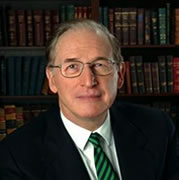Genetics.

This is coolbert:
Another response to the comments of the reader JS Bolton.
"Suppose that there is genetic variation as to which lineages, within a nation, become soldiers. Further, suppose that, in the extreme case, one populous lineage appeared 100x more frequently at service academies, than the average. Would this be a matter of great concern for the US, or other governments? Suppose that they were visually identifiable fairly often, what would be the implications, in terms of national security, as currently understood?"
There IS a society where a definite warrior lineage is found.
India is the place.
This lineage is to be found among those of the kshatriya caste. The persons traditionally found among the rulers and warriors of Hindu India.
This very long term continuity has been established through DNA testing. A lineage at least 3500 years old.
A lineage that is found only in males of the caste??!!
[This I qualify as I am not so knowledgeable about the DNA testing protocols and how to interpret them!!]
This lineage seems to be constrained to males within the kshatriya caste. Indicates a group of warriors entered India from the northwest around 1500 B.C., conquered the local population and took wifes from among the conquered peoples. Did NOT have their own women accompany them on their campaign of conquest!! Settled to become the rulers. Are eminent in Indian affairs to this day!!
I think that this is what JS Bolton has in mind. A group of persons who are predisposed to military service and possess those skills necessary to excel as military leaders.
Would this be a problem if those folks attended military academies in large numbers and dominated our militaries?
An American military caste, so to speak. Persons who would wield perhaps inordinate power and influence? Perhaps do so against the better interests of the democratic society?
I think not.
The U.S. has not had military dynasties. Almost has had, but not on the basis as has been seen in European military circles. Generations of "nobility" who saw military service as a means of ruling and contributing to the society from which they came. This seems NOT to occur in the U.S.
As I have said in a previous blog, think of U.S. society where upward mobility, money, power, and success for families [lineages??] does not last forever. Big money, for one thing, seems to last for only three generations. Think of such names from the past as Vanderbilt, Astor, Getty, and even the Rockefellers. Prominent at one time, but no longer.
I have a suspicion it would be so among the military also.
My opinion.
coolbert.

1 Comments:
Thank you for the favorable featuring. As you say, there is difficulty in
maintaining a distinctive enough group of traits, except for a strict caste society.
The government would likely be well-pleased to have a number of lineages of average ability, yet which were many times more likely to join the military.
Where I suspect they would turn unfriendly, would be if testing found that they had one that was populous and well above average on IQ.
Today there are no named ethnic groups which are both many times more likely to enlist, and many times more likely to be in the top percentiles of IQ, and not below average in athletics.
The genetic influence might be thought to be on a proto-loyalism and a proto-militarism; tendencies prior to conceptual function and remaining capable of less indirect influence by genes.
5:14 AM
Post a Comment
Subscribe to Post Comments [Atom]
<< Home